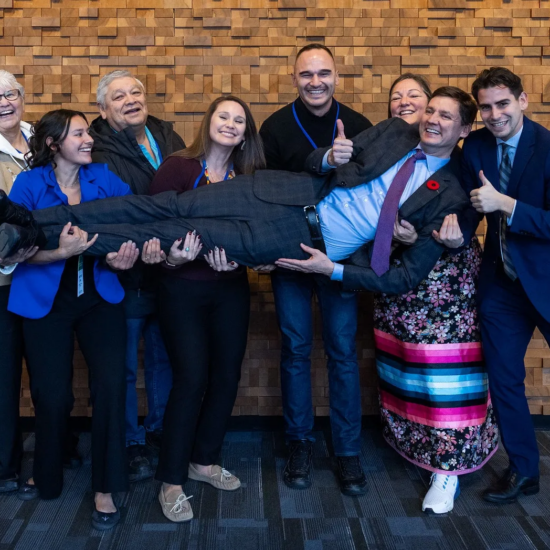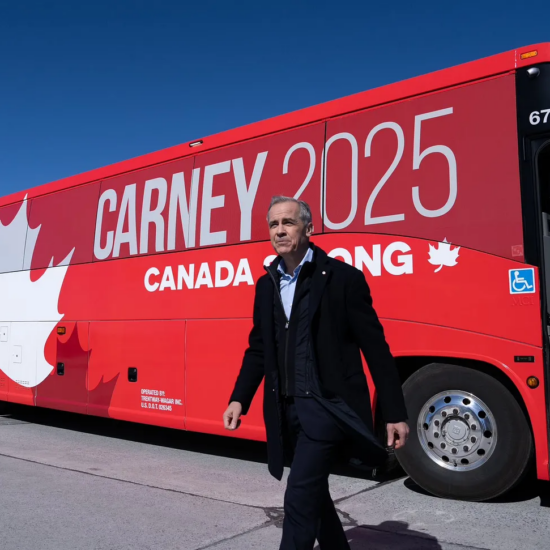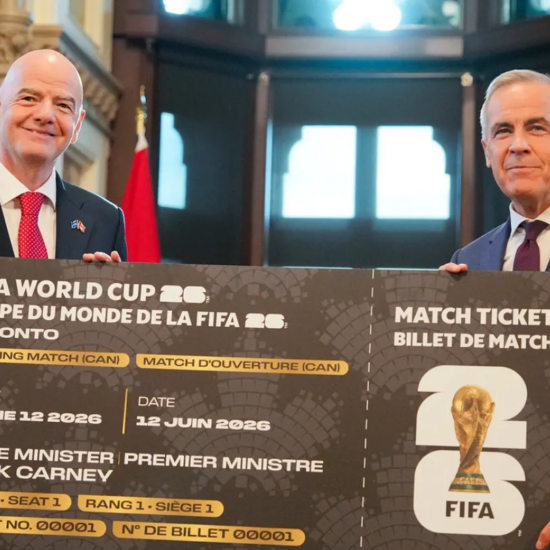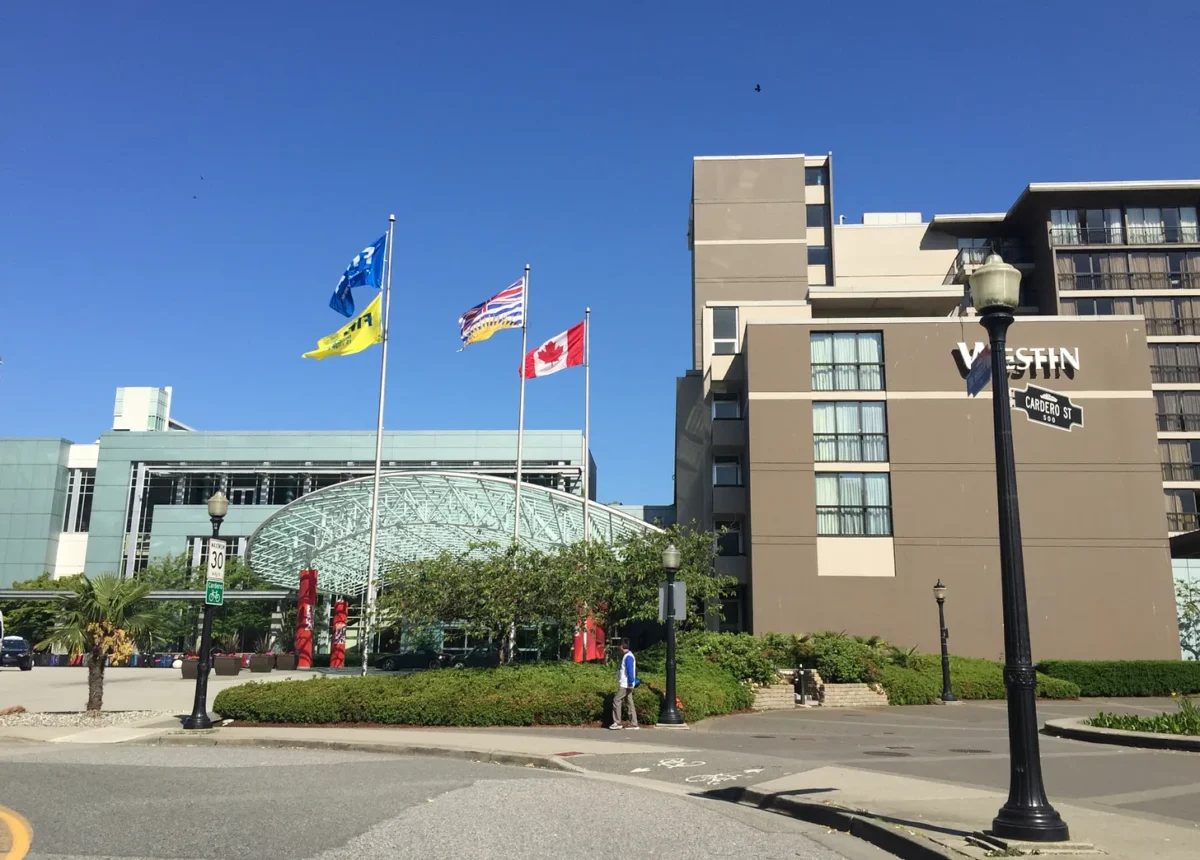
Bob Mackin
Fifty years after 1976 Olympic city Montreal hosted the FIFA Congress, the world soccer governing body’s power brokers are coming to Vancouver.
FIFA had dangled the prospect of an additional function, such as the congress, tournament draw or international broadcast centre, to the B.C. government in 2021, in order to convince then-Premier John Horgan to reverse his 2018 opposition. FIFA vice-president Victor Montagliani resides in a $6.6 million West Bay mansion in West Vancouver.
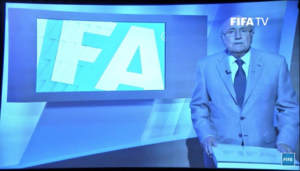
Sepp Blatter’s video greeting to Canada 2015 (Mackin)
The May 15 announcement at the 75th congress in Paraguay means the April 30, 2026 meeting will be the only event of the FIFA World Cup 26 year spotlighting all 211 members (only 48 of them will qualify to play in the June 11-July 19, 2026 tournament in U.S., Canada and Mexico). Among them will be Russia, China, Iran and North Korea, which means a heavy security bill for Canadian taxpayers, despite FIFA’s wealth.
FIFA told delegates in Paraguay that its assets grew last year to US$6.15 billion and the organization revised its revenue forecast upward for the 2023-2026 cycle by US$2 billion to US$13billion.
Canadian taxpayers do not know the full budget for hosting in 2026. Last year, Toronto estimated $380 million and Vancouver up to $581 million. That does not include federal security and border control. Public Safety Canada has refused to comment after repeated questions from theBreaker.news, before and after the federal election.
Biggest since 2010’s convening of the corrupt
The 76th FIFA Congress will be Vancouver’s biggest sports business event since the 122nd International Olympic Committee congress before and after the Vancouver 2010 Winter Olympics.
That IOC gathering in the Westin Bayshore hotel may go down as history’s biggest gathering of corrupt sports executives.
Who were some of the big names?
When he visited for the Under-19 Women’s World Championship in 2002, Vancouver’s bid team lobbied then-FIFA president Sepp Blatter. The Swiss voted in the 2003 election that made Vancouver the 2010 host.
In December 2015, Blatter was banned from FIFA for eight years, in the aftermath of FBI and Swiss police raids in Zurich. Detectives wanted to get to the bottom of decades-long corruption at the highest levels of world soccer. In March 2025, a Swiss court cleared Blatter and former UEFA head Michel Platini of fraud over Blatter’s 2 million Swiss franc payment to Platini in 2011.
Also at the Bayshore in 2010 were Blatter’s mentor and predecessor Joao Havelange and Issa Hayatou, FIFA’s interim president.
Brazilian Havelange was the most senior IOC member in Vancouver. He would die in 2016 at age 100 during the Olympics in hometown Rio de Janeiro. Hayatou subbed for Blatter at the Canada 2015 Women’s World Cup — Blatter was afraid of being arrested and extradited to the U.S.
Hayatou quit the IOC in December 2011 instead of waiting for the end of a probe into allegations he received a $1 million bribe from the bankrupt ISL marketing agency.
The IOC reprimanded Hayatou in October 2011 for taking $20,000 cash from ISL, money that the Cameroonian claimed was a gift for the African Football Confederation’s 40th anniversary.
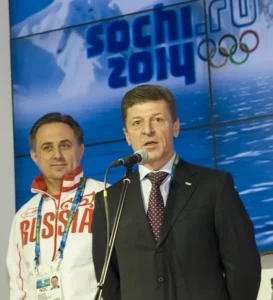
Russian sport minister Vitaly Mutko (left) and Deputy Prime Minister Dmitry Kozak at Science World in Vancouver during the 2010 Winter Olympics (Sochi Organizing Committee/Flickr)
A Qatari sheikh, Putin’s men and an old Spanish fascist
Some of Vladimir Putin’s right-hand men came on IOC business to Vancouver where the future Emir of Qatar, Tamim bin Hamad Al Thani, was re-elected an IOC member.
During Vancouver 2010, both Russia and Qatar were jockeying to host FIFA World Cups.
Russia’s Deputy Prime Minister Dmitry Kozak headed the Sochi 2014 delegation that included sport minister Vitaly Mutko, who joined FIFA’s executive committee in 2009.
Blatter shocked the world in December 2010 by announcing the winning Russia 2018 and Qatar 2022 bids, both tainted by vote-buying.
Lamine Diack, the head of world track and field from 1999 until 2015, was jailed in France in 2020 for two years after taking more than $1 million to cover up doping by Russian athletes.
A World Anti-Doping Agency investigation headed by Montreal’s Dick Pound (another session attendee) led to the suspension of Russia’s track and field team.
Diack’s 2015 successor, Sebastian Coe, chaired the London 2012 Olympics and came to Vancouver to give the IOC a planning update.
Coe was head of FIFA’s ethics panel in 2006 and became an IAAF vice-president under Diack in 2007.
Hein Verbruggen, the former International Cycling Union head, was an honorary IOC member at Vancouver 2010, where his successor, Pat McQuaid, was elected a member.
During Verbruggen’s 1991 to 2005 presidency, he was a staunch supporter of Lance Armstrong and scoffed at reports that Armstrong had cheated.
In 2013, Armstrong finally admitted that he doped to win seven Tour de France championships and surrendered his Sydney 2000 time trial bronze medal.
Verbruggen came under fire in summer 2010 when it was revealed that he had accepted Armstrong’s $125,000 donation to the federation’s anti-doping programs from 2002 to 2005.
An independent 2015 report was critical of Verbruggen for lacking transparency and breaching “certain sporting requirements.” The report slammed Verbruggen for not upholding the organization’s duty to keep cycling doping-free.
Verbruggen called the report a “scandalously biased” waste of money.
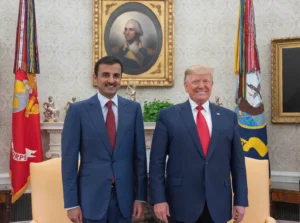
Emir of Qatar, Tamim bin Hamad Al Thani (left) was re-elected to the IOC in Vancouver. In 2019, he met President Donald Trump (Qatar Embassy)
Vancouver 2010 was the last Games attended by Juan Antonio Samaranch, the 89-year-old Spaniard. Voted the IOC president in 1980, Samaranch became “honorary president for life” in 2001. He didn’t run for re-election after the Salt Lake bribery scandal, in which 10 members were expelled.
His climb to power began in 1967 as sport minister for fascist General Francisco Franco. Under Samaranch, the Olympics opened the door to professional athletes in 1987, which helped attract billions of dollars of corporate sponsorship and TV deals.
World sport got richer and doping and corruption followed.
Before stepping down, Samaranch nominated his son, a vice-president of the International Modern Pentathlon Union, to the IOC. Juan Jr. also attended the Vancouver session.
Samaranch’s April 2010 death overshadowed the conflict of interest reprimand issued to International Ice Hockey Federation president Rene Fasel. A Swiss newspaper revealed in 2009 that Fasel, the IOC member overseeing Vancouver Games organizers, had helped a friend score a contract through the Infront, the IIHF’s TV and marketing agency run by Sepp Blatter’s nephew, Philippe.
Bob Mackin authored the e-book, Red Mittens & Red Ink: The Vancouver Olympics, available for purchase at Smashwords.
NEW: Subscribe to theBreaker.news on Substack. Find out how: Click here







